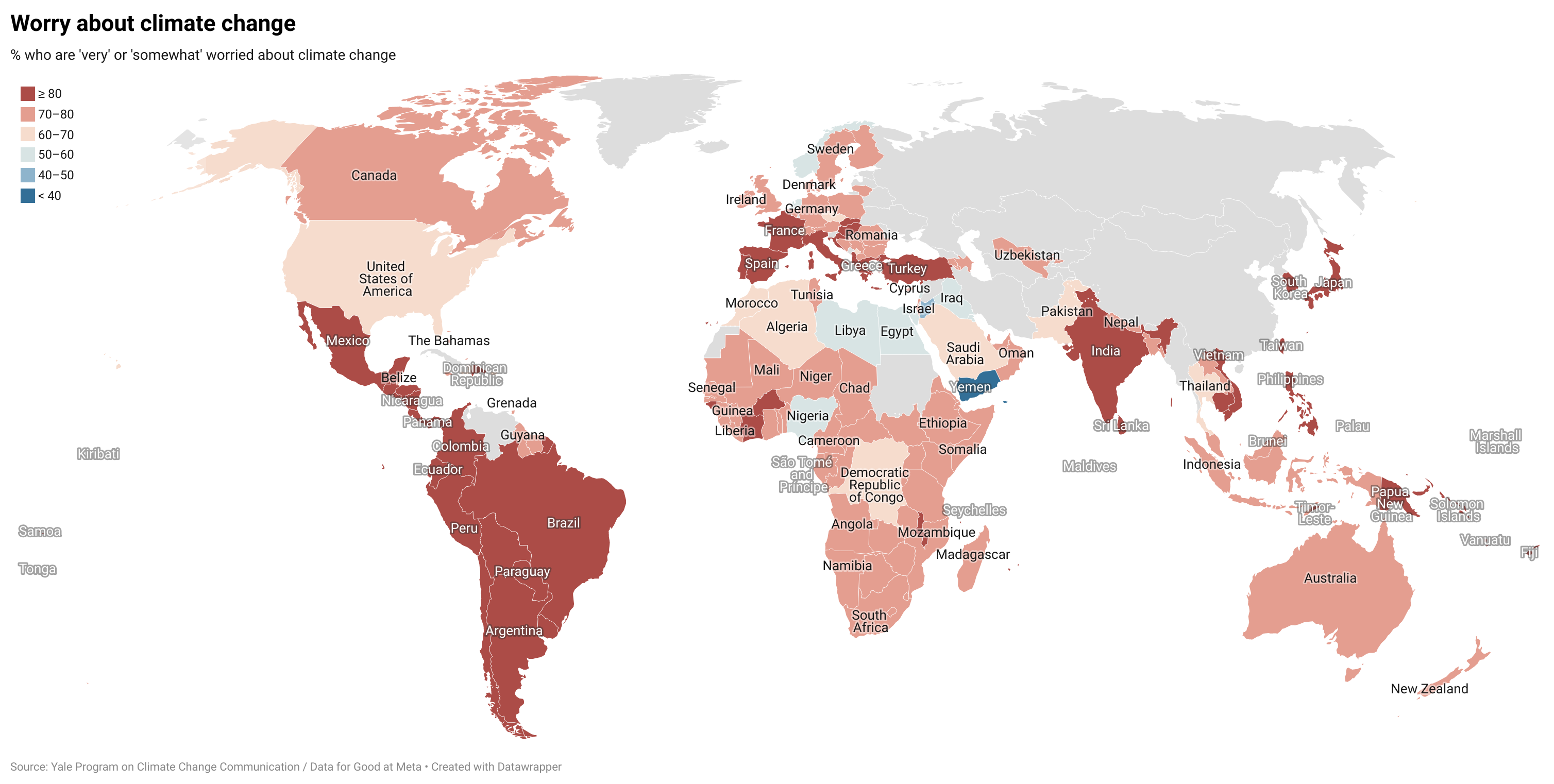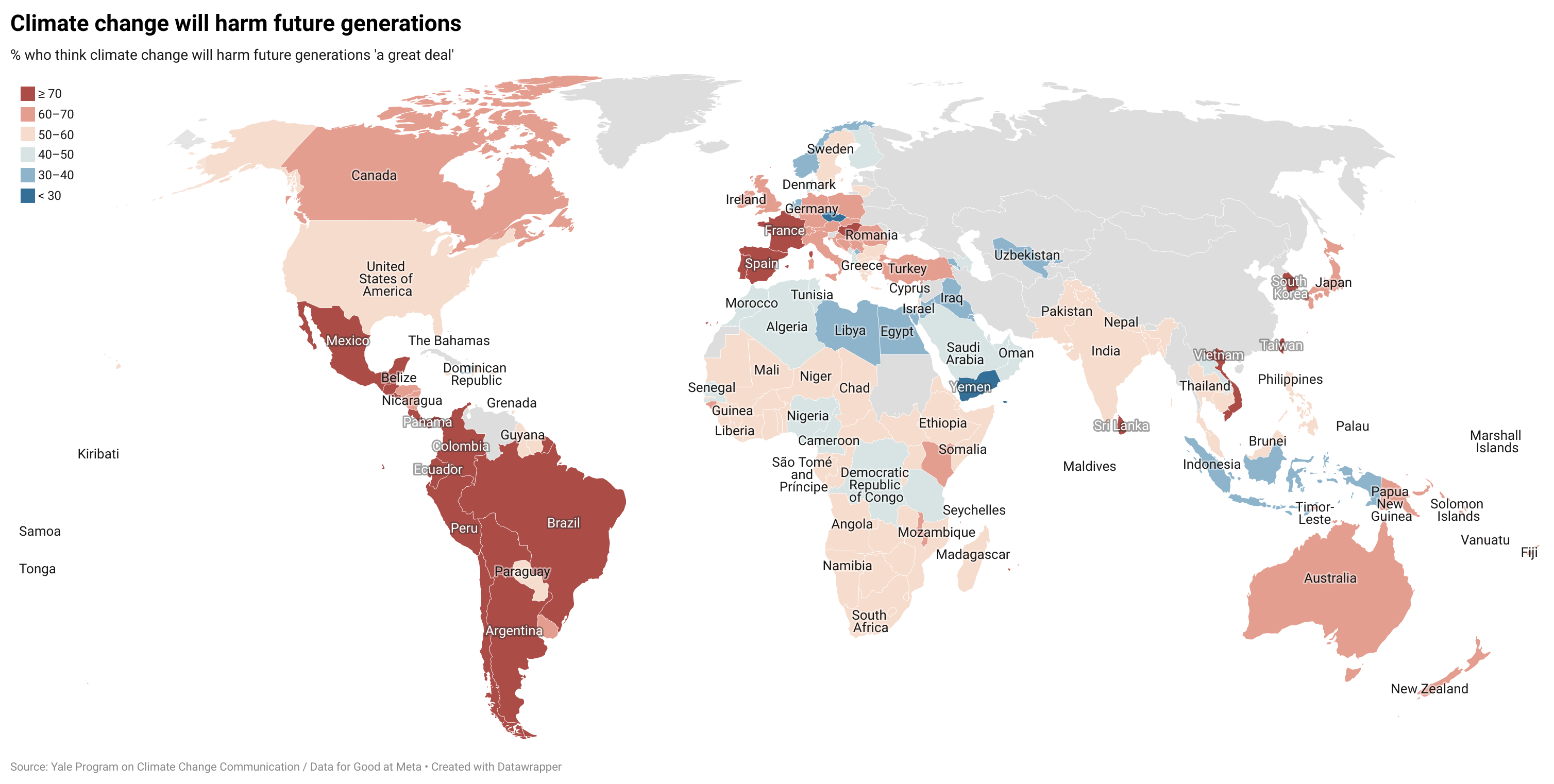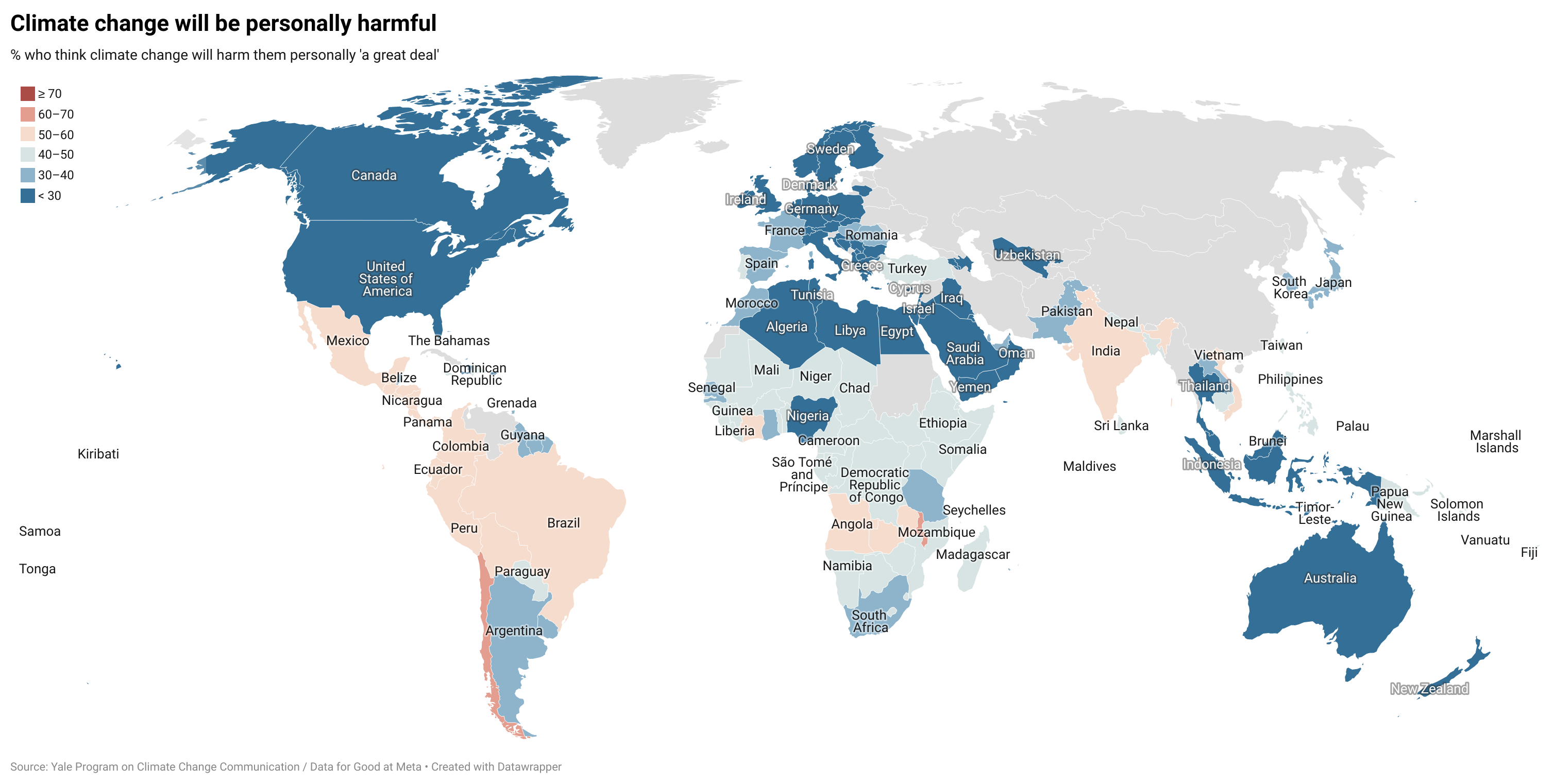Report · Jun 29, 2022
International Public Opinion on Climate Change, 2022
By Anthony Leiserowitz, Jennifer Carman, Nicole Buttermore, Liz Neyens, Seth Rosenthal, Jennifer Marlon, J.W. Schneider and Kelsey Mulcahy
Filed under: Audiences, Beliefs & Attitudes, Behaviors & Actions, Policy & Politics and Climate Impacts
2. Worry and Perceived Risks Regarding Climate Change
2.1 A majority of respondents in nearly every area are worried about climate change.
A majority of respondents in nearly every area surveyed (108 out of 110) say they are “very” or “somewhat” worried about climate change. More than nine in ten respondents in Mexico (95%), Portugal (93%), Chile (93%), Puerto Rico (92%), Costa Rica (92%), Ecuador (91%), Panama (91%), Peru (91%), and Colombia (91%) say they are worried. In contrast, only about one in three respondents in Yemen (32%) and just under half of respondents in Jordan (48%) say they are worried about climate change.
2.2 Majorities in most areas think climate change will harm future generations a great deal.
A majority of respondents in about two-thirds of the areas surveyed (76 out of 110) think climate change will harm future generations “a great deal.” This ranged from eight in ten respondents in Mexico (83%), Chile (80%), Puerto Rico (80%), and Costa Rica (80%) to about one-fourth of respondents in Yemen (23%).
Comparing results by region, respondents in South America are most likely to think that climate change will harm future generations a great deal (majorities in 9 out of 9 areas), while respondents in Southwest Asia and North Africa are least likely (majorities in 2 out of 17 areas).
2.3 Majorities in relatively few areas think climate change will harm them personally a great deal.
Majorities of respondents in 17 out of 110 surveyed areas think climate change will harm them personally “a great deal.” Respondents are most likely to say that climate change will harm them personally “a great deal” in Malawi (62%), Chile (61%), and Mexico (59%), and are the least likely to say so in Czechia (3%) and Norway (5%).
Comparing results by region (see Appendix II), majorities in relatively few regions think climate change will harm them personally “a great deal.” Respondents are most likely to say that climate change will harm them personally a great deal in South America (majorities in 5 out of 9 areas) and are least likely in Southwest Asia and North Africa (majorities in zero areas) and Europe (zero areas).
2.4 Climate change is personally important to respondents in most areas.
A majority of respondents in about three-quarters of the surveyed areas (80 of 110) say the issue of climate change is either “extremely” or “very” important to them personally. Respondents are the most likely to say that climate change is “extremely” or “very” important in Angola (86%), Zambia (86%), and the Philippines (83%). Respondents are the least likely to say so in Czechia (26%), Yemen (26%), and Jordan (27%).
Comparing results by region (see Appendix II), respondents in South America and Sub-Saharan Africa are most likely to say that climate change is important to them personally, with majorities in all areas saying so. Respondents in Southwest Asia and North Africa (majorities in 8 out of 17 areas) and Europe (15 out of 31 areas) are least likely.
2.5 Respondents in nearly every area think that climate change is a threat to their country or territory over the next 20 years.
A majority of respondents in all but one surveyed area (109 out of 110) think climate change is either a “very serious” or “somewhat serious” threat to the people in their country or territory over the next 20 years. This ranges from nine in ten or more respondents in Malawi (93%), Portugal (92%), Mexico (92%), Costa Rica (91%), Chile (91%), and Sri Lanka (90%), to about four in ten respondents in Yemen (42%) and just over half of respondents in Jordan (53%). Additionally, majorities in 47 out of 110 areas say that climate change is a “very serious” threat.
Comparing results by region (see Appendix II), a majority of countries and territories in every region say that climate change is at least a “somewhat serious” threat. However, there is some regional variation in where majorities are likely to think climate change is a “very serious” threat: Respondents in South America (8 out of 9 areas) and Sub-Saharan Africa (15 out of 17) are more likely to say that climate change is a “very serious” threat. Respondents in Southwest Asia and North Africa (1 out of 17) and Europe (2 out of 31) are less likely to say so.




